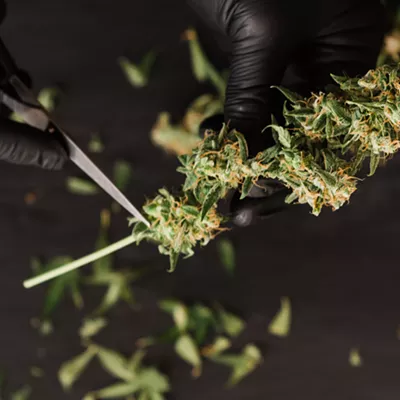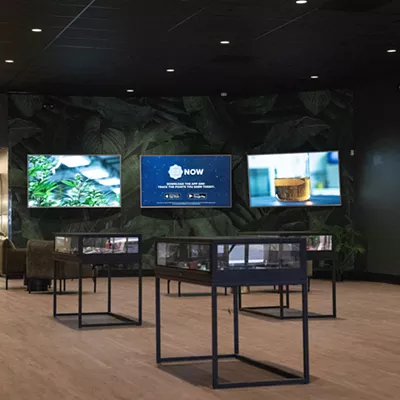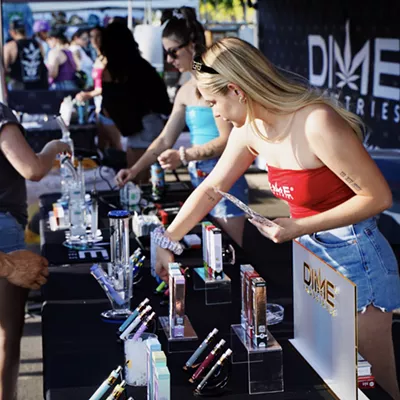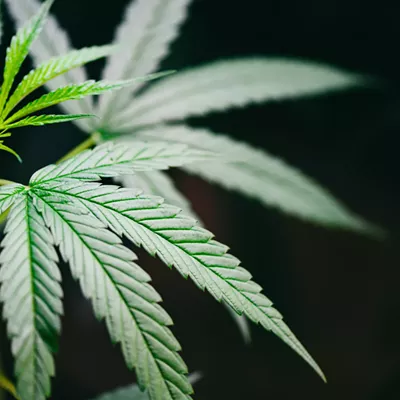Smoke shops and convenience stores can no longer sell delta-8 and other products without a cannabis license, according to the Arizona Attorney General, Kris Mayes.
In an opinion issued on March 13, Mayes stated that “Arizona law does not permit the sale of delta-8 and other hemp-synthesized intoxicants by entities that have not been licensed by health services.”
While the 2018 Farm Bill required hemp products to have no more than 0.3% of THC, hemp-derived products have become a ubiquitous commodity over the years, available for purchase in gas stations, smoke shops, and even online — oftentimes without an age restriction.
Because delta-8 is known for its mildly intoxicating effects, it tends to be described as a fully legal alternative to THC; and is often packaged in gummies, tinctures and vape cartridges.
Delta-8 occurs in the cannabis plant naturally but in small amounts. Commercially sold delta-8, on the other hand, has most likely been chemically synthesized from CBD to yield a higher concentration. Yet, delta-8 and other hemp-derived products have been privy to a lax set of regulations that presented alongside Arizona’s strict regulatory measures for selling and producing cannabis, has created inconsistent guidelines for how hemp-derived products can safely be produced and consumed.
Not much is known about the effects of synthesizing cannabinoids, along with the effects of the chemicals used in the process, despite their soaring popularity nationwide — a fact that has troubled scientists.
In 2021, scientists at the Massachusetts-based cannabis testing laboratory ProVerde found that out of the 5,000 products labeled to have delta-8 THC, 100% of them were contaminated. Some samples had up to 30 forms of accidental byproducts with unspecified toxicities. Similarly, the Food and Drug Administration cautioned that chemicals used to convert cannabinoids can contain contaminants, and that the safety of delta-8 products has not been assessed.
According to Mayes, because Arizona’s medical marjuana law defines marijuana as all parts of a cannabis plant, delta-8 should be subjected to regulatory oversight from the Arizona Department of Health Services.
“Delta-8 is an intoxicating hemp-synthesized cannabinoid with a chemical profile and psychoactive effect materially similar to that of marijuana,” she stated.
“Intoxicating cannabis products are schedule 1 controlled substances that may be sold only by licensed cannabis sellers in Arizona. Arizona’s 2018 industrial hemp law did not create an exception to these laws.”
In fact, Arizona’s hemp laws exclude extracts and derivatives, such as vapes and gummies, from the definition of industrial hemp altogether. According to Mayes, this exemplifies why selling delta-8 from unlicensed businesses is unlawful.
“These products may pose public health concerns and information about these products is still emerging,” Mayes added.
“Delta-8 is subject to health services’ regulatory oversight, and future regulatory decisions will necessarily be guided by evolving public health and safety information concerning this product class, as well as by particularized information regarding specific intoxicating hemp products and manufacturers.”
Before Mayes’ decision, the future of delta-8 had been highly contested among lawmakers, particularly when analyzed alongside the legality of marijuana as a whole.
States where cannabis is still illegal typically see higher amounts of delta-8 consumption, especially among minors. According to recent data from the National Institute of Health, in states where marijuana is illegal, 14% of high school seniors reported using delta-8 over the last year. In states where marijuana is legal, that percentage dropped to 8%.
While Mayes’ official opinion is not legally binding, it will essentially function as a legal expectation for businesses, according to her spokesperson, Richie Taylor. ADHS has not yet commented on how it will enforce marijuana laws on operations that currently sell delta-8.












